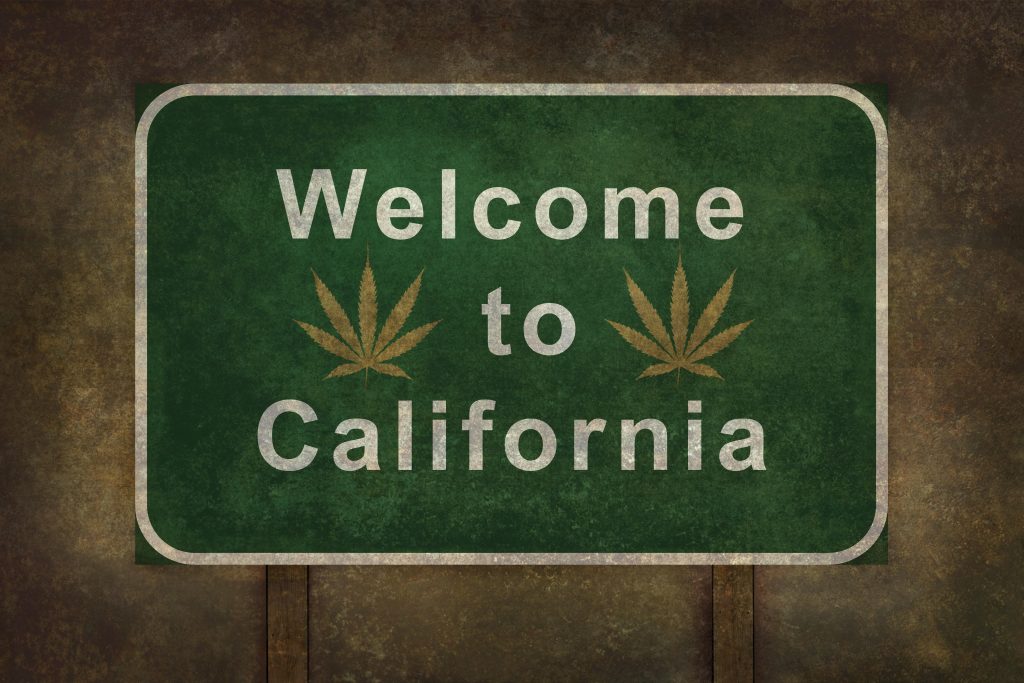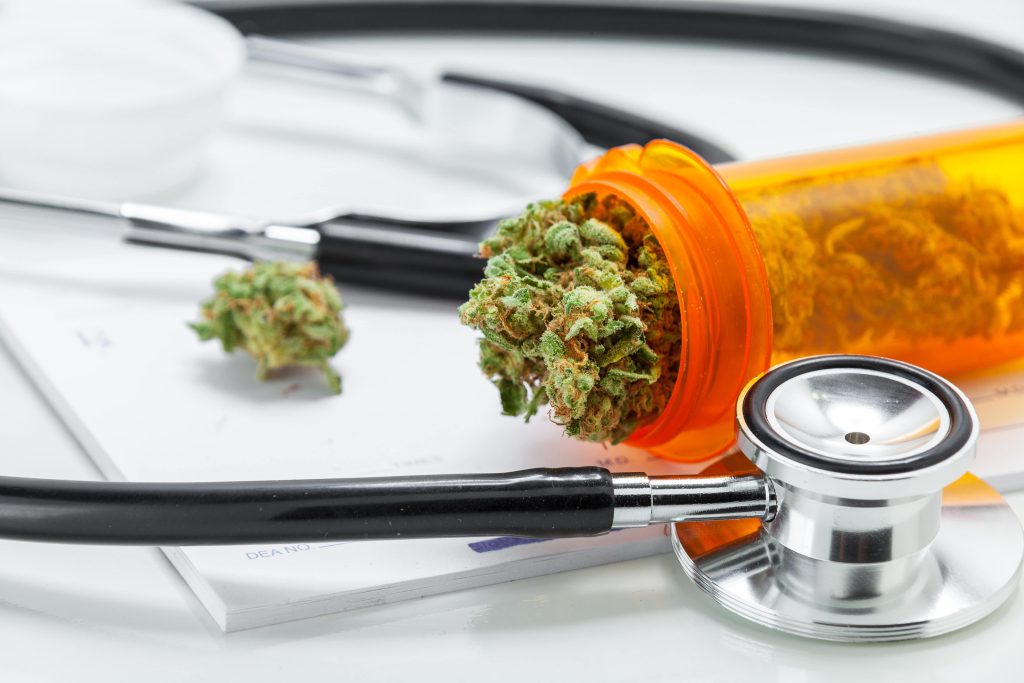
 Verified
Verified






















When the state of California passed the Compassionate Use Act in 1996, they became the first state to legalize the medical use of marijuana and CBD.
California later passed Proposition 64 in 2016. Prop 64 made it legal for adults over the age of 21 to enjoy recreational cannabis — and settled the Golden State’s position as a trailblazer for marijuana access.
Below, we answer the most common legal and healthcare-related questions concerning California medical marijuana laws and use.
There are a few steps involved when applying for a California medical cannabis card. Here’s the process step-by-step, including links to involved resources.
1. Applicants must apply for an MMIC through their local county program. They must also complete the application form and arrive at the county office with supporting documentation prepared. Applicants need to have a recommendation from a doctor, and Marijuana Doctors is an excellent resource. They help people connect with nearby local certified physicians, and going through them is a quick and easy way to expedite the process.
2. According to the California Department of Public Health, applicants will need to bring the following supporting documentation:
Applicants must pay the application fee as well. The application fee amount will vary from county to county, but is not to exceed $100. Medi-Cal beneficiaries are eligible for a 50% fee reduction.
During the in-person application process, a county office representative will take your photo for your ID card.
3. Once you have submitted the application, the county has 30 days to process it. Be aware that any missing documentation can delay the application process beyond 30 days.
If your application is denied, you have the right to appeal.
An MMIC is valid for one year from the date of approval. When the time comes to reapply, the procedure is the same.
Because of the 30 day application process time, it’s a good idea to reapply a month or so before the card expires.
Note that primary caregivers can assist a medical marijuana patient with the application process. However, they cannot submit the application on behalf of the individual, and the individual must be present at the county office to verify their identification and have their photo taken.
According to the California Department of Cannabis Control, a person’s primary care physician can recommend cannabis to help them manage one or more of the following health or medical conditions:
Your physician can also recommend cannabis to help with chronic or persistent medical symptoms that either:
The last two bullet points touch on an important fact. If you find that pain, unease, anxiety, or any other persistent symptom or medical condition not outlined above is compromising your quality of life, you may still qualify.
The list of qualifying conditions in no way encompasses the range of symptoms and situations for which a physician may suggest medical cannabis.
Speak to your primary care physician to learn more. Or, use the services at Marijuana Doctors to find a medical marijuana doctor in your area.
For those who are not diagnosed with a qualifying condition, a physician’s letter of recommendation is necessary for eligibility. The letter of recommendation must describe the degree to which the patient’s chronic condition is compromising their quality of life.
Yes. California law specifies where medical cannabis products can and cannot be smoked or otherwise ingested.
Per California state law, individuals are prohibited from smoking cannabis in public spaces and any other area where general smoking is not permitted. It is illegal to consume medicinal cannabis within 1,000 feet of a school, daycare, or youth center if children are present.
Smoking on private property is allowed unless the property owner states otherwise.
Because marijuana is still illegal at the federal level, it’s illegal to smoke on federal property. This includes national parks and any land administered by the Bureau of Land Management or the state forest service.
It’s important to note that several cities and counties in California have medical marijuana laws that differ from state laws. Always check the city or county website to be clear about what is and isn’t permitted in your specific location.
Below are links for the medical marijuana guidelines for some of California’s larger counties:
Many hotels do not tolerate in-room smoking. IIf a California resident visits another part of the state and stays in a hotel, they should check with the front desk reception to learn their guidelines.
It is important to note the two types of marijuana users in California: medical marijuana users and adult users. Adults are subject to a different set of laws than are medical marijuana users.
Medicinal marijuana users are defined as individuals who are 18 years or older and have a physician’s recommendation to use cannabis products. The person must have a qualifying condition to participate in the state’s medical cannabis program.
By contrast, adult users are defined as recreational users. Adult users must be at least 21 years of age to purchase and use cannabis products in the state.
Medicinal users are able to possess more cannabis, in general, than adult users are able to possess. They also have access to a wider range of marijuana dispensaries and retailers from whom they can purchase, and they can grow or purchase more if their physician gives them a recommendation to do so.
You Might Like: The Science of Storage: Maximizing Potency and Flavor in Cannabis Preservation

People may use medical cannabis products as long as their use is backed by a doctor’s recommendation. According to saclaw.org, a medical marijuana ID card is helpful but only optional.
For Californians who want access to more dispensaries and cannabis products — including those with higher concentrations of THC — it is ideal to obtain a card.
Cardholders can legally possess more cannabis, and grow more cannabis plants at home, as long as a state-licensed physician has recommended it.
Finally, California medical marijuana patients don’t have to pay a sale or usage tax. Adults who have a medical cannabis recommendation from a doctor, but don’t have a medical cannabis card, must still pay a 15% sales tax when purchasing cannabis in California.
Under the federal Controlled Substances Act, marijuana is still a schedule 1 substance. Many insurance companies do not cover any cannabis related products because cannabis is still illegal at the federal level.
This tends to be the case regardless of whether an individual is participating in a state medical marijuana program or has a medical marijuana recommendation from their physician.
Because marijuana laws vary from state to state, this can further complicate matters from an insurance perspective.
Fortunately, California offers relief for low-income cannabis patients. Programs like Eaze Compassion are able to provide free cannabis to qualifying patients who are experiencing financial struggles.
Read About: THC vs THCA: Understanding Their Unique Therapeutic Effects

In California, medical marijuana is usually recommended by doctors who specialize in medically therapeutic cannabis use.
That means in order to obtain a recommendation, you will more than likely need to see someone other than your primary care physician.
The doctor will review your medical records, including any current medications, before deciding whether to recommend marijuana for medical use.
The Marijuana Doctors website is one of the best and easiest resources for finding a California medical marijuana doctor.
Their convenient search filters will help you find a list of nearby providers fast. Marijuana Doctors can also help you locate local dispensaries and even get approved for your medical card.
Marijuana Doctors have helped thousands of people quickly and safely find doctors and reputable dispensaries.
Yes. Many other states offer reciprocity, which means they honor the cardholder status of out-of-state patients.
However, reciprocity can get a little tricky. Laws differ by state and sometimes even within states. Here’s a list of states that generally accept out-of-state MMJ cards:
Many states have lifted bans on adult recreational use. In these states, adults are able to recreationally enjoy cannabis as long as they adhere to local laws:
California does not have reciprocity laws. That means that California does not honor out-of-state medical marijuana cards.
In addition, California does not offer temporary short-term cards for out-of-state visitors.
Medical marijuana patients who come from another state to visit California should follow the state guidelines for adult use.
Most states, including California, are relatively lenient and do not disqualify anyone from obtaining an MMC, even if they have a felony conviction.
Note that when it comes to obtaining a medical marijuana business license, the laws are much stricter.
No, it is still illegal to cross state lines with cannabis, even if it’s legal in the states to and from which you are traveling.
Law enforcement can confiscate marijuana during a traffic stop or arrest. If this happens to a person who has a medical marijuana card or recommendation, they are entitled to recover their property.
If law enforcement is not forthcoming with the property, patients may file what’s called a motion for returned property.
The Americans for Safe Access organization is committed to ensuring that patients are granted safe and legal access to medical marijuana. Their website contains helpful guidelines for how to safely navigate potential interactions with law enforcement.
If your MMIC is lost, stolen, or damaged, and you require a new card to be issued, contact your local county program for more information.
We hope this guide answered many of your questions about California medical marijuana laws and access.
Remember that because some California localities have their own cannabis laws, it’s a good practice to check with your local authority before procuring marijuana for medicinal or recreational use.